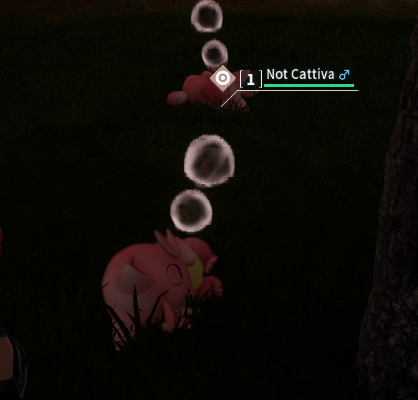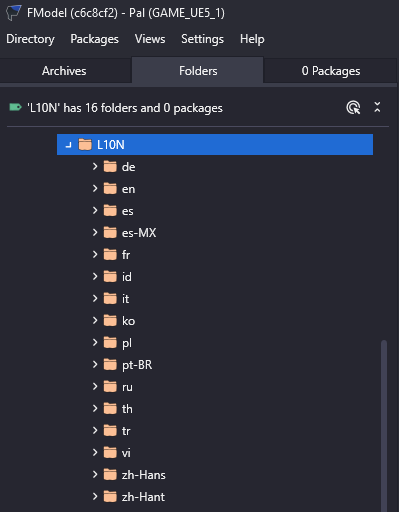Intro to Translations
Hello there! So you're interested in creating new localization entries for the game? You've come to the right place!
With PalSchema you can also support languages that aren't normally supported by the game.
Setup
-
First, let's create a new mod folder called
MyTranslation. -
Inside
MyTranslation, you'll want to create another folder calledtranslations. This folder must be calledtranslationsso it can be recognized by PalSchema.
Language Codes
Before we get back to our mod, we'll have to first understand what a 'language code' is. Language code is basically abbreviations that represent different languages like en for English for example. This is something commonly used in computing context for translation related stuff.
PalSchema utilizes ISO 639 two-letter codes to determine which language it should be using, just like Unreal Engine does. You can check all the available language codes over here https://en.wikipedia.org/wiki/List_of_ISO_639_language_codes
For now, let's just use en, so English. However you're welcome to try different languages.
Creating the Localization Folder(s)
-
In the Setup section, the last thing we did was creating a
translationsfolder, we'll want to create a folder calledeninside thetranslationsfolder which means we'll be altering or creating translations for the English localization. -
Inside the
enfolder, create a new file calledexample_translation.json. -
Open
example_translation.jsonand write this inside of it:
{
"DT_PalNameText": {
"PAL_NAME_PinkCat": "Not Cattiva"
}
}
DT_PalNameText is where the names of all Pals are stored and you might notice that it has this weird prefix PAL_NAME_. This is different for each localization file and is necessary to make sure the game actually reads these entries. We'll be modifying the name of Cattiva in the above example.
- Now we can launch the game and check if our changes took effect!

Success!
Going Further
Now that you have the basic understanding of translation mods, you'll be able to create and modify localizations for anything in the game. I recommend using FModel and exploring the localization files which can be found in Pal/Content/L10N.
